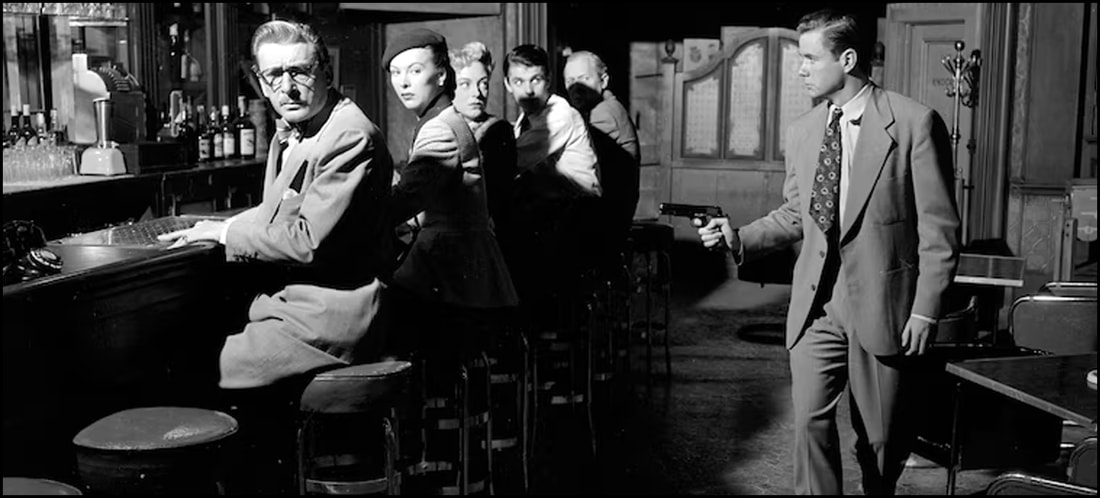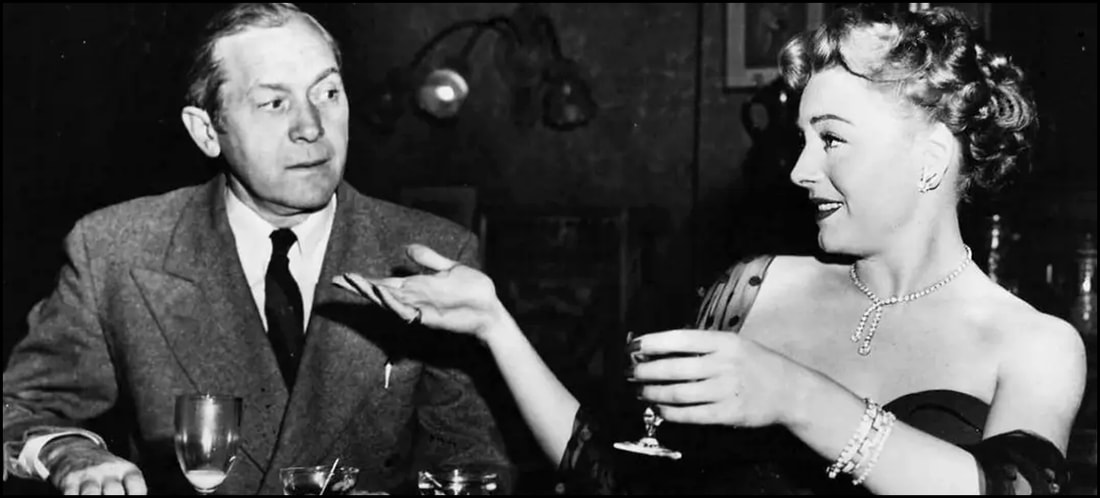Today’s distraction? A straight-up crime thriller titled Dial 1119.
According to IMDB.com, this 1950-produced picture was the first directed by Gerald Mayer, the nephew to MGM studio head Louis B. Mayer. I’ve also read that the story was largely crafted to tap into the social concerns of the era: as random acts of violence had started to occur seemingly regularly across the United States, folks grew increasingly concerned with crime and those who would perpetrate such dark deeds. In that respect, the film does rather deftly make use of a single location throughout a good portion of its second half; and it’s staged in a way that ably demonstrates the claustrophobic affects of victims huddled together waiting for a savior (or a saving act) to emerge.
As per my usual format, the film’s synopsis appears below. My two cents on its construction follow.
(NOTE: The following review will contain minor spoilers necessary solely for the discussion of plot and/or characters. If you’re the type of reader who prefers a review entirely spoiler-free, then I’d encourage you to skip down to the last few paragraphs for the final assessment. If, however, you’re accepting of a few modest hints at ‘things to come,’ then read on …)
From the film’s IMDB.com page citation:
“An escaped psychiatric patient causes havoc.”
Oh, good grief!
I’ve been known to take issue with the synopses provided by the good folks at IMDB.com on occasion. It isn’t that the one provided for Dial 1119 is inaccurate in any regard; rather, it’s far too brief for my tastes, and I think folks would agree. If you read that on the back of a DVD or VHS box and that was all you were provided, would that interest you further? That’s about as bland as you can get, so forgive me while I expound a bit further.
The escaped mental patient is Gunther Wyckoff (played by Marshall Thompson), and he’s arrived in Terminal City with hopes that he can extract what he feels is vengeance on Dr. John Faron (Sam Levene), the psychiatrist whose testimony ultimately kept him from the electric chair. As penance for his sins, Wyckoff wants to die but not at his own hand. If he must, he’ll take matters into his own hands, take the patrons of a corner bar hostage, and demand that the police deliver Faron to him … or else.
So, yes, this is an idea and a structure that’s been done many times before. Set in a small tavern, Dial 1119 keeps the cast reasonable small, filling out the place with what’s best described as a few regulars who just happen to be enjoying a few drinks when Wyckoff comes calling. Each of them is given a light background – Skip (Keefe Brasselle) is the young barkeep whose wife has just gone into labor; Freddy Virginia Field) is the resident flirt who just wants a man to buy her a drink; Earl (Leon Ames) is an academic who’ll stop at nothing to capture the attentions of the vastly-younger-than-him Helen (Andrea King), etc. – but they’re essentially here to play the role of the victim. Set against Wyckoff and the ticking clock on the wall, they spend their tense moments wondering if tonight is the night that they’ll become more than a passing crime statistic.
Functionally, I think it’s safe to suggest that Dial 1119 works reasonably well. Though its bar wasn’t set very high (pun intended), director Mayer moves each of the players through each of his or her small moments; sadly, there’s no big performance anywhere in here – Field brings a sense of moxie to what services for a 50’s era barfly, and she’s always great to look at – and that alone works against what could’ve been rising tension amongst the lot. Thompson does affable enough work as the man mentally struggling with issues to the point of becoming homicidal, but he, too, never quite achieves the kind of menace I think needed to elevate this one to greater heights. It’s a good enough 85-minute thriller – one with workable cinematography and even one of filmdom’s earliest suggestions of a flat panel screen used in restaurants to keep patrons captivated. (Nowadays, we find these everywhere, don’t we?)
If anything, I left the feature with a sense that a tauter script and maybe a bit more scene chewing by Thompson could’ve made this one something really special. It’s a great discovery – I’d never heard of it before stumbling upon it one evening on Turner Classic Movies – and, while I enjoyed it, it’s the example of a good older picture that just missed enough of its opportunities to keep it from total obscurity.
Dial 1119 (1950) was produced by Metro-Goldwyn-Mayer. The film was directed by Gerald Meyer from a script credited to John Monks Jr., Hugh King, and Don McGuire. As for the technical specifications? Though I’m no trained video expert, I found the sights-and-sounds to the feature to be quite good from start-to-finish. Lastly, if you’re looking for special features? Given the fact that I viewed this one via television broadcast, there were no special features to consider.
Highly recommended.
While it’s no barnburner in any respect, Dial 1119 still makes great use of a single-set format and the ‘race against time’ scenario to suggest that fans of classic features – especially film noir – might wanna give this one a whirl. Performances are good – imperfect in a few spots – and the dialogue is entertaining enough to lift it above a number of older features. And if you like hostage dramas? This one definitely explores familiar territory.
In the interests of fairness, I viewed Dial 1119 (1950) when it played in rotation on Turner Classic Movies. As such, I’m beholden to no one for a review … except myself, of course!
-- EZ



 RSS Feed
RSS Feed